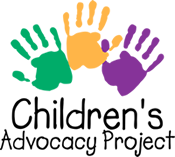Forensic Interview
We provide forensic interviews for children up to 18 years of age and for vulnerable adults alleged to be victims of abuse and maltreatment. The goal of a forensic interview is to obtain a statement from a child who may have been abused. The interview is conducted in a developmentally-sensitive, unbiased and truth seeking manner that will support accurate and fair decision-making in the criminal justice and child welfare systems. Through a series of non-leading questions, the interviewer gently assesses the child’s communication skills so the interview is conducted at a level that is consistent with the child’s developmental abilities.
The forensic interview is used to assess whether or not a crime has occurred. All interviews conducted are recorded in the CAC interview room with only the child and interviewer in the room. Law enforcement investigators, prosecutors from the District Attorney’s Office, and Child Protective Services Investigators witness the interview through closed circuit television in the monitoring room on-site.
Extended Forensic Interview
Children are referred for an Extended Forensic Interview when: 1) the child does not disclose abuse to investigators, but exhibits behaviors or other indicators strongly suggestive of victimization, 2) the extent or nature of abuse is not disclosed by the child during the initial investigative interview, or 3) when the information gathered in the initial investigative interview needs further clarification.
The purposes of the Extended Forensic Interview are to: (1) determine the likelihood of whether or not the child has been abused, and to identify suspected perpetrators (2) gather forensically sound facts necessary for child protection and law enforcement officials to understand what, if anything, has happened (3) allow the child to disclose over time in a non-threatening environment and to assess the extent and nature of the alleged abuse (4) gather information regarding the child's social and behavioral functioning in order to make treatment recommendations, and to establish a foundation for effective treatment if needed.
Therapeutic Intervention
The mental health services not only address the abuse allegations but the needs of specialized population who are victims of sexual/physical abuse. Therapists conduct individual, family, and/or group counseling. By creating a safe, therapeutic relationship, children and their families are able to process their experiences and begin healing from the abuse they have endured. Each client's treatment is individualized to meet his or her emotional, psychological, and developmental needs. Services are offered to children, siblings, and to non-offending caregivers.
Mental Health Assessments
All mental health treatment begins with a thorough assessment process that includes clinical interviews, observations of the client and his/her family, and administration of psychological self-report measures, and review of relevant documents. The therapist, client (if age appropriate), and the caregiver/parent will meet to review the results of the assessment and then complete a treatment plan that includes identification of specific problems and goals.
Medical Exams
CAP staff will assist families and partner agencies with referring specialized medical exams for child clients. Referred exams will be conducted by specially trained nurse examiners with experience in providing medical services to alleged victims. CAP staff and the MDT work directly with the SANE nurses at Banner Wyoming Medical Center and meets regularly to ensure the best quality of services to victims.
Victim Support/Advocacy
The Advocates are designed to support non-offending caregivers in cases of alleged child sexual abuse in such a manner that they can act responsibly to protect & support the alleged child victim.
The non-offending caregiver, particularly in incest cases, is besieged by a wide array of pressures and emotions. If the child is to be protected and remain in their own home the non-offending caregiver often must choose to support the child in the face of their own denial, that of the alleged abuser, and the denial of their family and friends. This task is made more difficult by the array of emotions with which the parent must deal, including denial, shame, rejection, fear, anger, and loss. Added to this is the reality many such parents were themselves victimized as children, thus the alleged abuse potentially rekindles old deep-seated emotions. Combined with the emotional stress is the financial impact
caused by sudden separations and the loneliness and isolation often resulting from separations.
The Advocate helps to identify the non-offending caregiver's most urgent need for the family. Basic needs must be met first, such as food, clothing, shelter and safety of the child. The advocate’s role is to provide support for the non-offending caregiver and help guide the caregiver toward healthy decision making.
Case Review
CAP and the MDT participate in monthly Case Review meeting. Case Review encourages mutual accountability and helps assure that children’s needs are met sensitively, effectively and in a timely manner. Case review is intended to plan and monitor current cases. Representatives from each core discipline must attend and/or provide input at case review. Case review serves multiples purposes:
- Experience and expertise of MDT members is shared and discussed
- Collaborative efforts are fostered
- Formal and informal communications are promoted
- Mutual support is provided
- Protocols and procedures are reviewed and
- Informed, collective decisions are made.
Case Tracking
A system of monitoring case progress and tracking case outcomes for team components to ensure statistical accuracy.
